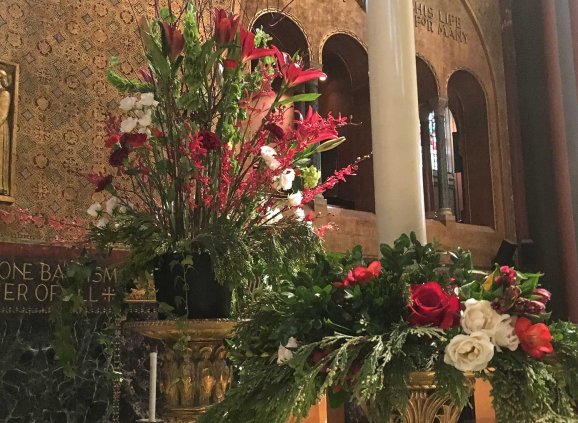
- Vested Interest
What Works Deeper Than Thought

We are anxious people, living in an anxious age.
These were my thoughts on the morning of January 1, 2017. The glow of the previous night’s festivities had dissipated and I was walking, slightly bleary-eyed, through a bright cold morning on my way to church. I was thinking of the coming year, and of a recent conversation I’d had: a friend had shared some of their worries over a major life transition they were facing without much support from their family and community. These fears, coupled with their own quirks of psyche, were haunting them in the form of emotional and physical symptoms of anxiety. I was thinking of my own experiences of clinical anxiety in years past, the strange embodiment that fear can take: a shortness of breath, a shuddering in the limbs, the panicked racing of the heart. So often the fears that we are not willing to face in our minds manifest themselves in our bodies.
My anxiety was relatively minor, and through therapy I learned to manage my symptoms primarily within the realm of the physical. On the (rare, now) times that I begin to panic, I treat my body like the frightened animal that it is. I relax my shoulders and consciously unclench my fingers. I gently convince my lungs to breathe slower and deeper. I close my eyes and listen to my heart. It’s okay, I tell my body. You’re not dying. This will pass. You just need to wait it out. I don’t try to fix the problem that’s causing me fear; usually that’s not even possible. I don’t even try to argue with the fearful thoughts racing through my head. Thoughts are not the issue. The fear works in me on a level deeper than thought.
So these were my musings on the way to church Sunday. I can’t begin to add up the number of friends I have for whom clinical anxiety is a major roadblock. And more subtly, this year I’ve been learning to recognize larger fears that insinuate themselves into our culture: fear of violence; fear of losing our ground; fear that if someone has more, we will have less. I share these fears, I’m part of the culture that gives them power—and I despise them. I want to know how not to be afraid.
Trinity was more full than I expected on the first day of 2017. Glancing around in during the opening procession, I saw friends from the 9 am service, the 11:15, and the 6 pm service all seated in the pews, along with many new faces—parishioners I haven’t met yet, or visitors, or Bostonians who felt the need to start the year off with worship. I listened to the Opening Sentences and Collect of the day without paying much attention. We sang the “Song of Praise” (traditionally known as the Gloria) to a verse of “Good Christian Friends, Rejoice.”
Out of nowhere, it seemed, I was struck with an unreasonable, and unreasoning, joy. I hadn’t particularly wanted to get up and hobble out to church at the unholy hour of 10 a.m. I wasn’t particularly focused, or prayerful, or pious. I hadn’t worked hard for this joy, in the way my sin-tangled brain thinks I should have to pay for everything good I have. And yet there it was: an exquisite, ridiculous happiness that lifted me right up into Trinity’s gilded and bedecked tower. Because, after all, it was still Christmastide; and the huge baroque vases still flanked the altar, dripping with scarlet lilies; and we read, with the Psalmist:
When I consider your heavens, the work of your fingers,
The moon and the stars you have set in their courses,
What is man that you should be mindful of him?
The son of man that you should seek him out?
Recounting the moment now, I can find ways to think about it, ways to integrate it into who I believe myself to be. But that didn’t happen in the moment, and that’s precisely what’s important. I don’t fundamentally come to church to learn, or to consider, or to think, although those are all good things I do while I’m there. I come to church because worship works on me—on my body, on my emotions, on everything that is myself—at a level deeper than thought. And it works to enkindle in me a love and a joy that leaves no room for fear.
At "Vested Interest," church nerd Mary Davenport Davis explores all things liturgy and music at Trinity and beyond. Chime in with comments and questions!


Comments